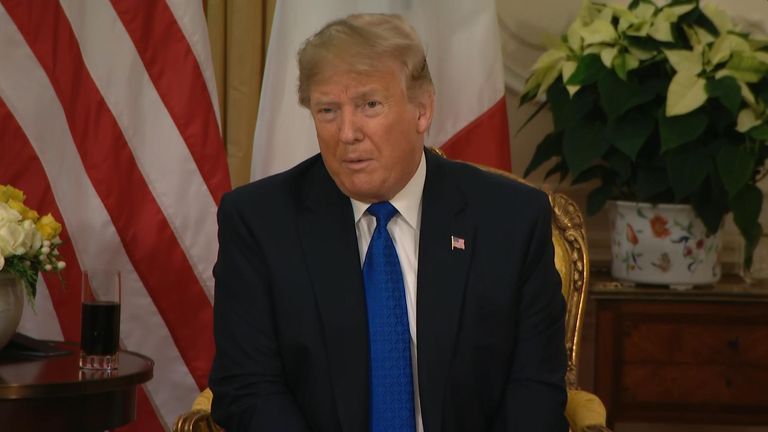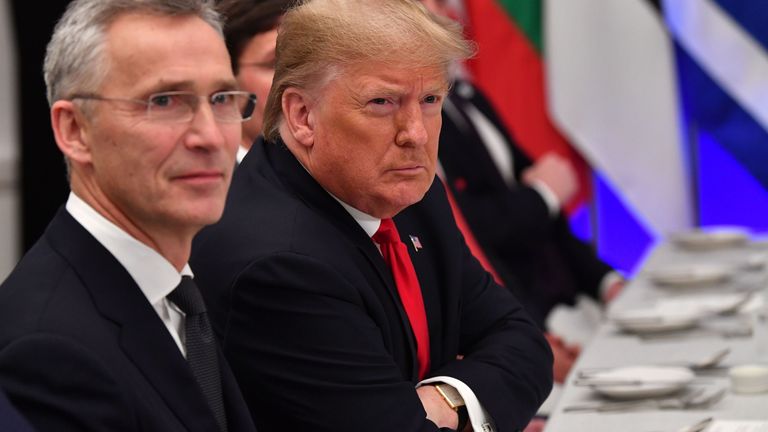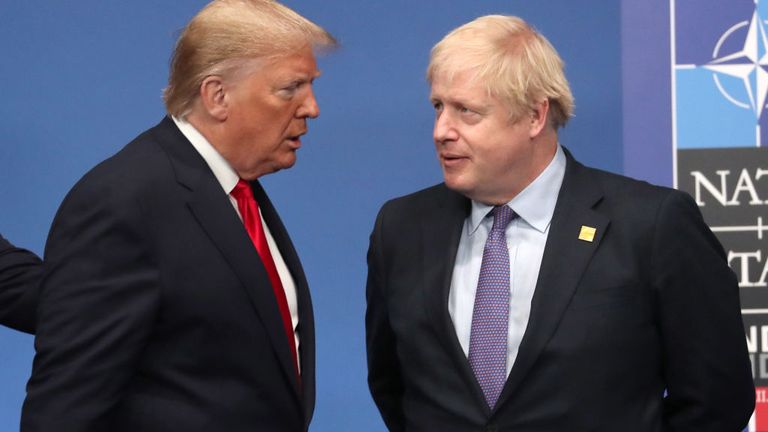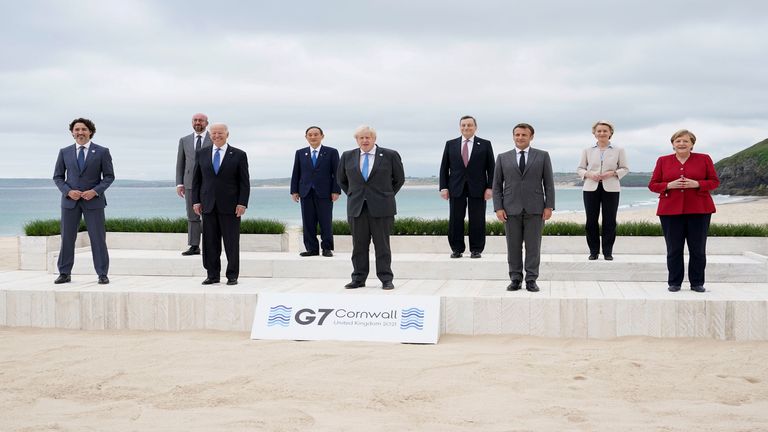The US, Britain and other NATO allies are today expected to sharpen their language on the challenges posed by China, keep up pressure on Russia and for the first time make tackling climate change a security priority.
Joe Biden will be centre stage at the alliance's first leaders' summit since the pandemic began.
It will set out how NATO seeks to transform to deter new threats - from cyber attacks and fake news to super-fast missiles and space weapons that can destroy satellites.
The in-person gathering in Brussels comes ahead of the US president's first face-to-face meeting with his Russian counterpart Vladimir Putin in Switzerland on Wednesday and follows a three-day summit of the G7 in Cornwall.
Russia's president told NBC News in an interview ahead of his meeting with Mr Biden that relations between Moscow and Washington were at their "lowest point".
The new US leader is expected to reassure NATO of America's "ironclad commitment" to collective defence - words that could not contrast more starkly with those of his predecessor.
Donald Trump spent his presidency threatening to quit the alliance and berating allies for not paying their fair share. It made the usually carefully choreographed NATO meetings highly unpredictable and combustive.
In a sign of allies settling back into a more harmonious phase, the White House even released a statement on Sunday setting out key outcomes of the summit in advance.
They included a plan to revise a blueprint by next year that shapes everything NATO does.
The new "strategic concept" will "guide the alliance's approach to the evolving strategic environment, which includes Russia's aggressive policies and actions; challenges posed by the People's Republic of China to our collective security, prosperity, and values; and transnational threats such as terrorism, cyber threats, and climate change."
NATO leaders will also approve a plan to update the alliance's cyber defences and seek to combat the greatest test for the planet - climate change.
As part of this new initiative, NATO will seek to lead the way in "understanding and adapting to the impact of climate change on security", the White House statement said.
For example, there will be increased chances of conflict as countries vie for diminishing access to resources like water and populations migrate.
Armed forces all NATO countries will also reduce greenhouse gases from their activities and bases - an area that is not well monitored at present.
Jens Stoltenberg, the NATO chief, said in a pre-summit news conference on Friday: "My ambition is a clear commitment from allies to significantly reduce military emissions and for NATO to contribute to the goal of Net Zero."
While there will be a strong display of unity at the summit, questions remain about whether the majority of allies have the political will and economic ability to commit the necessary funds to meet NATO's future vision, especially during a pandemic, according to observers.
Britain's prime minister, fresh from hosting the G7, will stress the importance of security as the world attempts to rebuild from coronavirus.
"NATO is not just important to the UK's security, it is our security," Boris Johnson said in a statement released by his office.
"To meet new challenges and face down emerging threats. This will ensure NATO is still the bedrock of global defence for generations to come."
Listen and follow the All Out Politics podcast on Apple Podcasts, Google Podcasts, Spotify, Spreaker
NATO leaders, including Mr Biden, began arriving in the Belgian capital on Sunday ahead of the half-day summit later at the alliance's giant, glass headquarters.
Despite the relatively short length of the discussions, allies are expected to agree a lengthy communique which looks set to include a toughening of language about the challenges posed posed by China, according to three European sources.
China was mentioned for the first time in a NATO leaders' communique after the previous summit, hosted by the UK, in 2019 - when it was described as a challenge and an opportunity.
Eighteen months later, this language is expected to give more of a sense of how Beijing, with its growing military power, poses a challenge to the world's democracies.
The allies will still stress areas of co-operation, including climate change.
But there is concern particularly in the US about the threat posed by a rising China, with officials accusing the ruling Chinese Communist Party of human rights abuses and attempting to undermine international rules established since the Second World War.
https://news.google.com/__i/rss/rd/articles/CBMihwFodHRwczovL25ld3Muc2t5LmNvbS9zdG9yeS9uYXRvLXN1bW1pdC1qb2UtYmlkZW4tdGhlLWZvY3VzLW9mLWF0dGVudGlvbi1hcy1hbGxpYW5jZS1wcmVwYXJlcy10by10YWxrLXRvdWdoLW9uLWNoaW5hLWFuZC1ydXNzaWEtMTIzMzEzNTTSAYsBaHR0cHM6Ly9uZXdzLnNreS5jb20vc3RvcnkvYW1wL25hdG8tc3VtbWl0LWpvZS1iaWRlbi10aGUtZm9jdXMtb2YtYXR0ZW50aW9uLWFzLWFsbGlhbmNlLXByZXBhcmVzLXRvLXRhbGstdG91Z2gtb24tY2hpbmEtYW5kLXJ1c3NpYS0xMjMzMTM1NA?oc=5
2021-06-14 00:56:15Z
52781665373067






Tidak ada komentar:
Posting Komentar